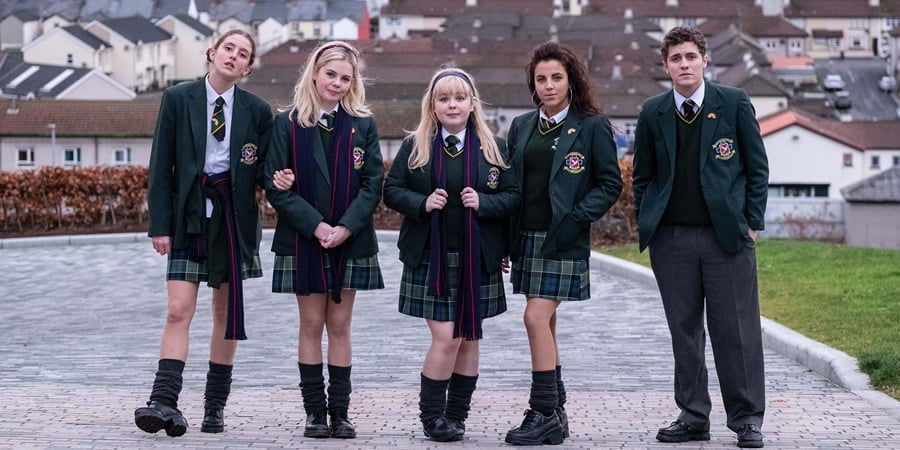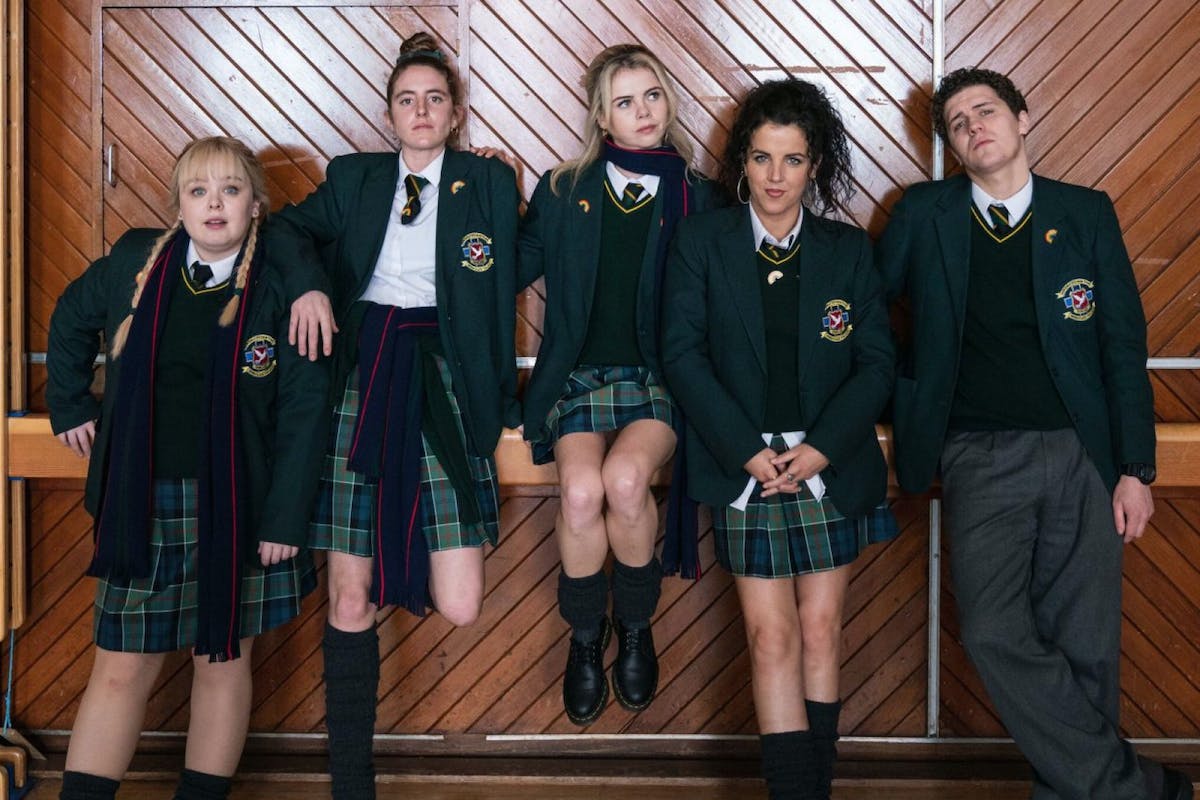Perhaps, some things should necessarily end. And at the end, lie their greatest beauty. Season three of Derry Girls is finally on Netflix and it is a gem of a production. There have been many coming-of-age teenage shows on television over the years but Derry Girls gives us a concluding season that precisely ties up everything the show is about. With most of its episodes being just almost half an hour, it is the definition of short and sweet.
A “wee” bit of a rundown, Derry Girls, written by Lia McGee, follows the story of Erin, Clare, Michelle, Orla and James, five teenagers from the Northern Irish town of Derry or Londonderry. Set in the late 1990s, in the backdrop of The Troubles, a period of violent conflict in Northern Ireland. As that may suggest, it could very easily have been a serious political statement but instead, McGee chooses to tell the story of something much more inherent to every era of the world: adolescence and its many difficulties.
Erin’s mother’s decision to finally take a break and pick up her interests is definitely one of the highlights of the series. It warms our heart to see the ever-caring Ma Mary delve into her love of literature, for, how often do we see the story of women having to bury their dreams and desires to care for the family?
The five Derry Girls lie to teachers, try to meet their favourite musician at a concert, fawn over the opposite sex and desire love, friendship and freedom. But what makes the show all the better is that the momentous conflict around them is never ignored. Through the television in the background, the radio, the random checkpoints when going to school and conversations over dinner, it is shown how much it becomes a part of everyone’s lives, and nothing ever really stops because of it.

At the beginning of the new season, the girls and James sneak into their school after Sister Michael hints at the fact that their GCSE results might be less than satisfactory. They end up in jail but surprisingly, not because they had wanted a peek at their results. Erin’s mother’s decision to finally take a break and pick up her interests is definitely one of the highlights of the series. It warms our heart to see the ever-caring Ma Mary delve into her love of literature, for, how often do we see the story of women having to bury their dreams and desires to care for the family?
In one of the episodes, we see the mothers return to their school reunion and revel in their own share of teenage drama (which includes Jenny Joyce’s mother). It lays down an important lesson of how people often drift away with age and circumstance. However, shared memories are always present and can be revisited. When they mistakenly open someone else’s buried memory box instead of their own one, it shows the long-standing continuum of ordinary lives that play out regardless of the intricacies of politics around them. And there are personal tragedies to cope up with, as the penultimate episode of the season shows. Tragedies like death, affect everyone in the vicinity and it does so especially when you are as tight knit as the group in the show. It comes in the most sudden times too, like when you are ready to have the time of your life at a Halloween parade with your favourite musician live in action. And with this, the Derry Girls also usher in adulthood.
The last episode of the season anticipates Erin and Orla’s upcoming eighteenth birthday party. Things have changed drastically in a year for all of them. This goes for the political scenario too as the Good Friday Agreement is in the talks and people are gearing up for voting. Just as with every other teenager, turning eighteen is a big deal to Erin too- it is to Orla and even Jenny Joyce. They plan their parties with meticulous details and as it nears the end of their adolescence, we draw closer to a deeply satisfying end to the journey of watching them.

“It’s good. It’s exciting. And maybe a wee bit scary too, you know,” Erin says when asked how she feels about the fact that they are all officially adults now. Her ending monologue is complemented by real scenes from the Troubles but also of children playing in the park and such ordinary activities that went on simultaneously. There is a montage of the girls, their memories from school and everyone who has accompanied them to the journey of adulthood as “Dreams” by The Cranberries play in the background. “But things can’t stay the same. And they shouldn’t…Because things, well, they might just change for the better,” Erin continues as the family gets ready to vote. It is perhaps a shared sentiment about the Agreement and what it might bring, as well as adulthood.
And with the ending juxtaposition, Derry Girls comes to a neat end. We see the Quinn family leaving the polling booths, with anticipation and perhaps, hope for a new beginning just as the girls and James, too, move towards adulthood. Might we miss Derry Girls? Absolutely. But there could not have been a better ending. In an era of modern television where series are either slogged endlessly to milk public interest or cancelled abruptly, Derry Girls ends on a brilliant note.
About the author(s)
Sudarshana Ganguly is currently pursuing a Bachelors in English from Jadavpur University. When she’s not procrastinating or falling victim to impulse retail therapy, she can be found learning new languages, fangirling over her favourite kpop acts and daydreaming about herself as a future magazine editor. She is passionate about fashion, especially about how it can be made more sustainable and inclusive.





